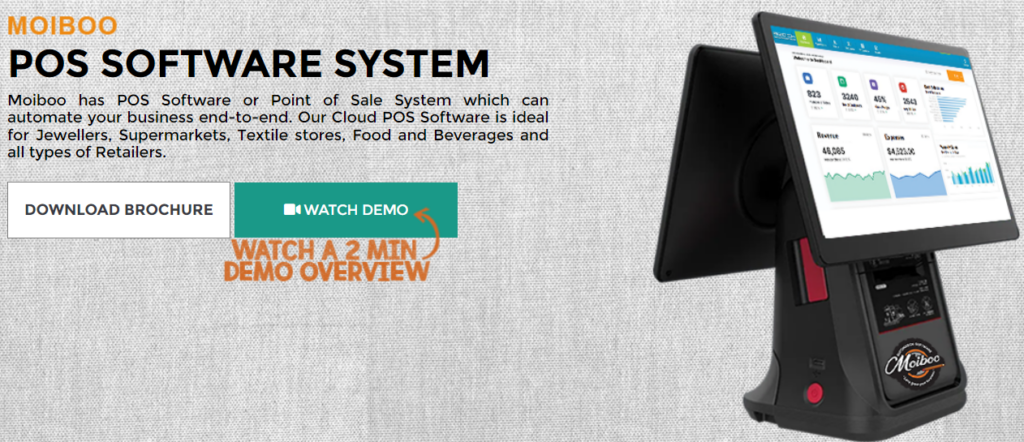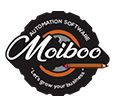Introduction:
In today’s competitive business landscape, staying ahead requires efficient operations and streamlined processes. One area where businesses can significantly enhance their operations is by investing in a quality Point of Sale (POS) system.
A reliable POS system goes beyond simple transaction processing; it can revolutionize the way businesses manage their sales, inventory, customer data, and more. In this article, we will explore ten key benefits of investing in a quality POS system and how it can help businesses achieve greater success.

Enhanced Efficiency and Time Savings:
A quality POS system can significantly enhance operational efficiency and save valuable time for businesses. With streamlined processes and automated features, such as barcode scanning and inventory management, employees can complete transactions quickly and accurately.
This efficiency allows staff to focus on providing exceptional customer service rather than getting bogged down with manual tasks. Additionally, a POS system can automate various administrative tasks, including generating reports, managing staff schedules, and tracking sales data, freeing up management’s time to concentrate on more strategic activities.
Improved Accuracy and Reduced Errors:
Investing in a quality POS system can significantly reduce human errors and improve overall accuracy in sales and inventory management. Manual entry of sales and inventory data can be prone to mistakes, leading to discrepancies and loss of revenue. A reliable POS system automates these processes, eliminating the possibility of human errors.
Accurate inventory tracking ensures that businesses have real-time visibility into stock levels, preventing overselling or stockouts. Moreover, precise sales data facilitates informed decision-making, allowing businesses to identify trends, optimize product offerings, and adjust pricing strategies accordingly.
Seamless Integration and Scalability:
A high-quality POS system offers seamless integration with other business tools, such as accounting software, customer relationship management (CRM) systems, and e-commerce platforms. This integration eliminates the need for manual data entry and ensures data consistency across different systems.
Furthermore, a scalable POS system can adapt to a business’s changing needs as it grows. Whether it’s adding new locations, expanding product lines, or integrating with new technologies, a quality POS system can accommodate these changes, providing businesses with a future-proof solution that can evolve with their requirements.
Enhanced Customer Experience:
A quality POS system can greatly enhance the customer experience, leading to increased customer satisfaction and loyalty. With a reliable POS system, businesses can offer various payment options, including contactless payments and mobile wallets, accommodating the preferences of modern consumers.
Additionally, features like customer profiles and purchase histories enable personalized interactions and targeted marketing campaigns, fostering stronger customer relationships. Efficient checkout processes and shorter waiting times contribute to a positive shopping experience, leading to higher customer retention rates and positive word-of-mouth recommendations.
Detailed Analytics and Reporting:
Investing in a quality POS system provides businesses with comprehensive analytics and reporting capabilities. Robust reporting features allow managers to gain insights into sales performance, inventory turnover, and customer behavior.
By analyzing this data, businesses can make data-driven decisions to optimize their operations, identify top-selling products, and understand customer preferences. Moreover, these analytics can help businesses identify potential issues, such as slow-moving inventory or underperforming sales channels, allowing for timely intervention and improved profitability.
Enhanced Inventory Management:
Efficient inventory management is crucial for any business, and a quality POS system simplifies and automates this process. With real-time inventory tracking, businesses can maintain optimal stock levels, preventing stockouts or overstocking. Automatic inventory alerts notify when stock levels are running low, ensuring timely reordering and reducing the risk of lost sales. Additionally, an advanced POS system can
Conclusion:
Investing in a quality POS system offers numerous benefits that can significantly impact a business’s success. From enhanced efficiency and time savings to improved accuracy and reduced errors, a reliable POS system streamlines operations, allowing businesses to focus on growth and customer satisfaction. Seamless integration and scalability ensure that businesses can adapt to changing needs and leverage new technologies.
The enhanced customer experience, facilitated by personalized interactions and efficient checkout processes, leads to increased customer loyalty and positive word-of-mouth. Detailed analytics and reporting provide valuable insights for informed decision-making, while efficient inventory management prevents stockouts and optimizes stocking levels.
Ultimately, a quality POS system is a valuable investment that can drive business growth, improve profitability, and foster long-term success.

If you’re currently in search of a reliable POS software solution for your business, we highly recommend considering Moiboo POS software. Our Cloud POS Software is renowned for its robust features and ability to automate and streamline various aspects of business operations, making it an ideal choice for a wide range of retail establishments.
Whether you own a jewelry store, supermarket, textile shop, or food and beverage establishment, Moiboo POS software can cater to your specific needs. With its user-friendly interface and advanced functionality, our PSG Grant pre-approved POS software empowers you to efficiently manage your business from end to end.
To witness the benefits of Moiboo POS software firsthand, we invite you to request a free demo of our services. Should you have any inquiries or require additional information, please don’t hesitate to contact us at the following phone number: +65 9895 1817.

FAQS:
How does POS software differ from ERP?
POS software and ERP systems both serve different purposes within a business. POS software focuses specifically on streamlining sales transactions, inventory management, and customer interactions at the point of sale. It is designed to handle real-time sales data, process payments, and manage inventory levels.
On the other hand, ERP systems integrate and manage all core business processes, including finance, accounting, HR, inventory, supply chain, and customer relationship management. ERP systems provide a comprehensive view of the entire organization, facilitating data flow and decision-making across different departments and functions.
Is POS or ERP better for retail?
For retail businesses, both POS and ERP systems serve distinct purposes. POS software is ideal for managing sales transactions, and inventory, and providing a seamless customer experience at the point of sale.
On the other hand, ERP systems offer broader functionality by integrating multiple business functions such as finance, accounting, inventory, and customer relationship management.
The choice between POS and ERP depends on the size and complexity of the retail operation, with smaller businesses typically benefiting from a robust POS system while larger retailers may require the comprehensive capabilities of an ERP system to manage their operations effectively.
Why do we need POS software?
POS software is essential for businesses as it simplifies and automates critical aspects of sales and customer transactions. It enables efficient processing of payments, accurate inventory management, and real-time tracking of sales data.
POS software also enhances the customer experience by facilitating quick and seamless checkouts, offering multiple payment options, and enabling personalized interactions.
It provides businesses with valuable insights through analytics and reporting, helping them make informed decisions to optimize operations, increase profitability, and improve overall efficiency.
